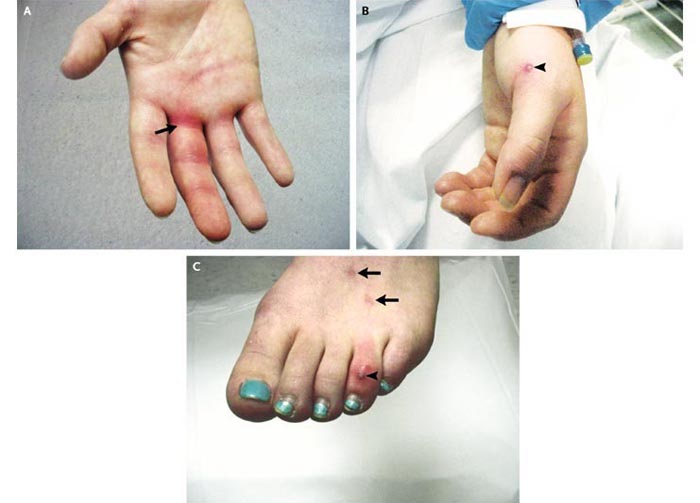
Disseminated Gonococcal Infection(DGI) ia a systemic infection that follows the hematogenous dissemination of the gonococcus from infected mucosal sites to skin, tenosynovium, and joints and is characterized by fever, petechial or pustular acral lesions, asymmetric arthralgias, tenosynovitis, or septic arthritis. It is occasionally complicated by perihepatitis and, rarely, endocarditis or meningitis.
Causes of Disseminated Gonococcal Infection
This infection occurs in people who have been infected with gonorrhea. It affects women four times more often than men, and is most common among sexually active adolescent girls. There is also increased risk during menstruation and pregnancy.
Two forms of arthritis exist — one with skin rashes and multiple joint involvement, and a second, less common, form in which disseminated gonococcemia leads to infection of a single joint (monoarticular) and joint fluid cultures are positive.
Symptoms of Disseminated Gonococcal Infection
- skin rash or lesion
- flat rash (macular)
- pink to red
- with time rash may become pustular or purpuric
- vaginal or urethral discharge
Diagnosis
Made on clinical criteria, confirmed by culture of gonococcus from mucosal sites.
Treatment
See Neisseria Gonorrhoeae Infections.
References